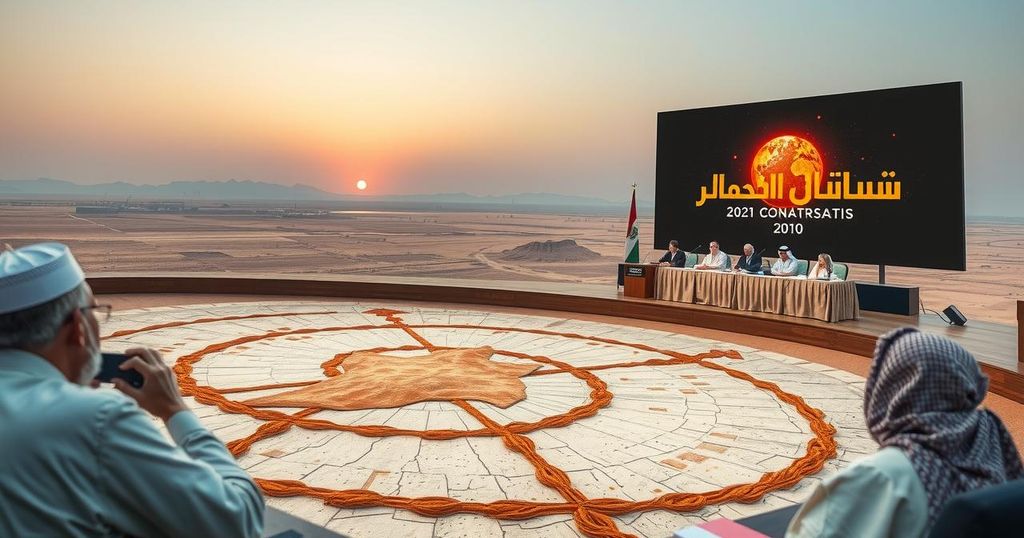Saudi-hosted UN Talks Fail to Reach Drought Agreement, Pushing Action to 2026

The Saudi-hosted UN talks ended without a drought agreement, pushing a global drought regime proposal to COP17 in 2026. Representatives from developing nations expressed disappointment over the lack of a binding protocol to address drought concerns, highlighting the ongoing divide between nations. Droughts threaten vast populations and require significant action, including $2.6 trillion in investments for land restoration.
The recent United Nations talks hosted in Riyadh concluded without reaching a binding agreement to tackle global drought, amidst ongoing challenges in climate negotiations. Known as COP16, this meeting brought together representatives from 196 countries and the European Union for 12 days. Discussions aimed to establish a global drought regime were ultimately deferred to the upcoming COP17 scheduled for 2026 in Mongolia. Continuing a trend of dissatisfaction following other climate discussions, developing nations expressed their frustrations with the lack of commitment to substantive action on drought management, a critical issue impacting millions worldwide.
Droughts pose a significant threat, driven largely by human-induced environmental degradation, costing the global economy over $300 billion annually. The UN report associated with COP16 warned that by 2050, droughts may affect up to 75 percent of the world’s population. The biennial gatherings provide a platform for nations, especially those in Africa, to advocate for binding agreements that would hold governments accountable for developing frameworks to combat and prepare for droughts. However, a divide persists between the Global South’s call for mandatory commitments and the Global North’s preference for non-binding frameworks.
In summary, the COP16 talks in Riyadh ended without consensus on a drought protocol, highlighting the persistent divide between developed and developing nations in addressing climate change. With a global drought framework now slated for future discussion at COP17, the urgency of coordinated international efforts remains evident as the impacts of drought intensify globally. There is a collective need for decisive action and adequate investment, peaking at $2.6 trillion to restore over 1.5 billion hectares of affected land by the end of the decade.
Original Source: www.aljazeera.com








